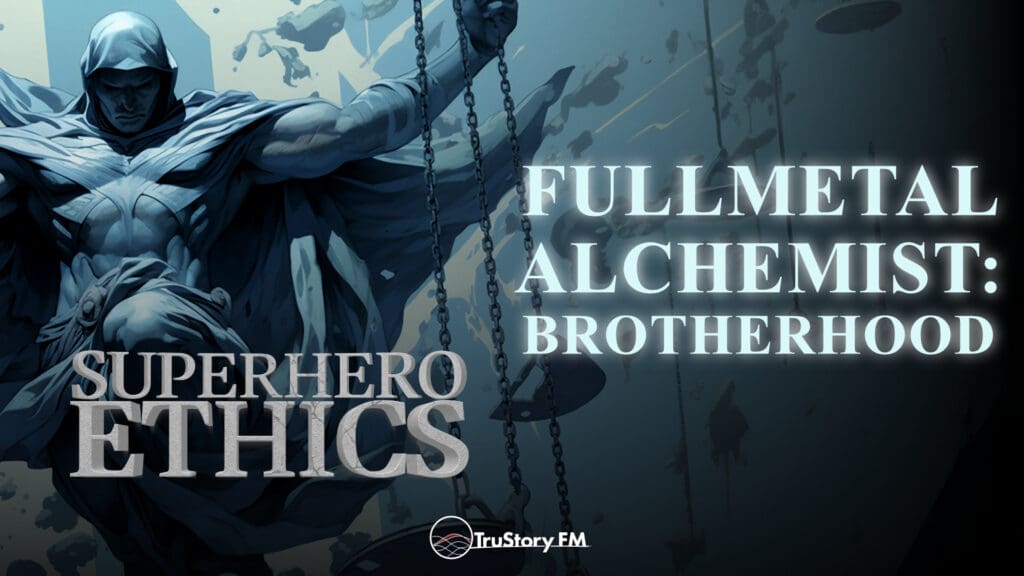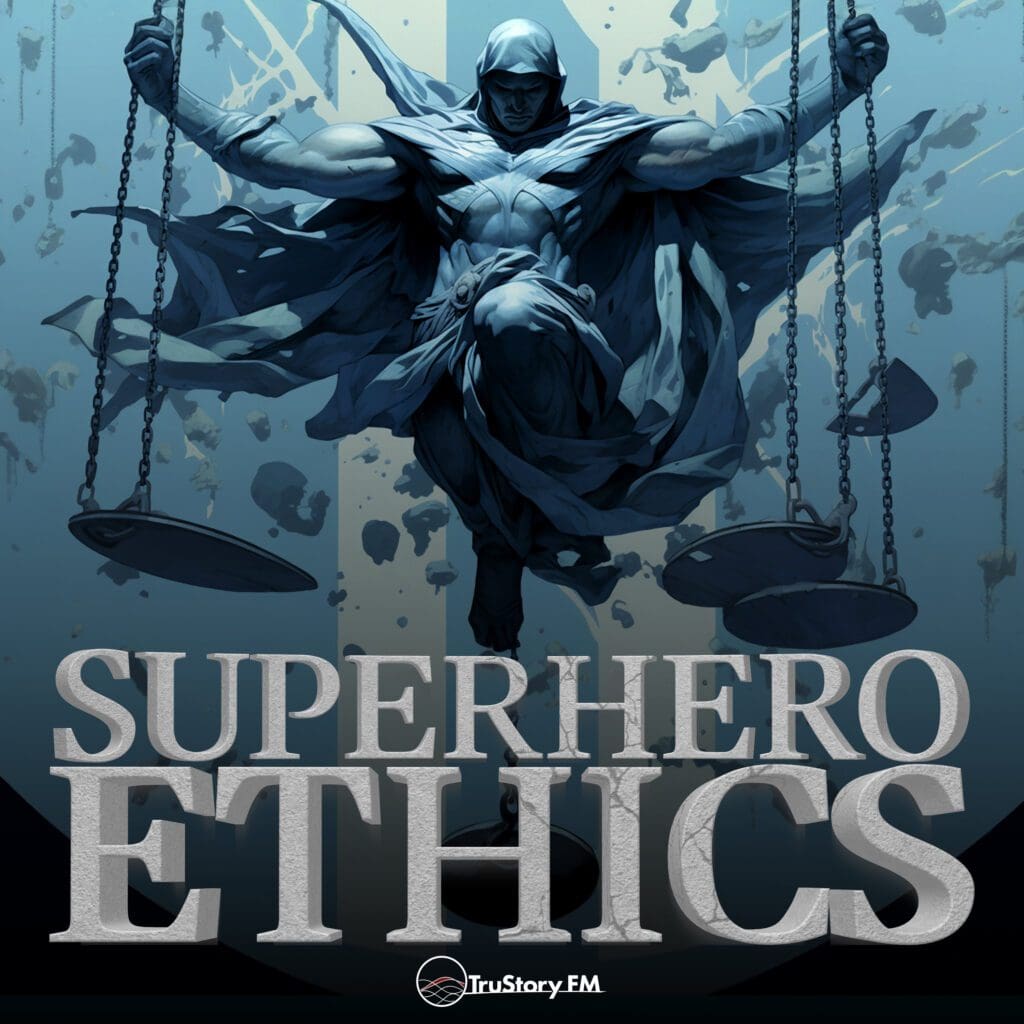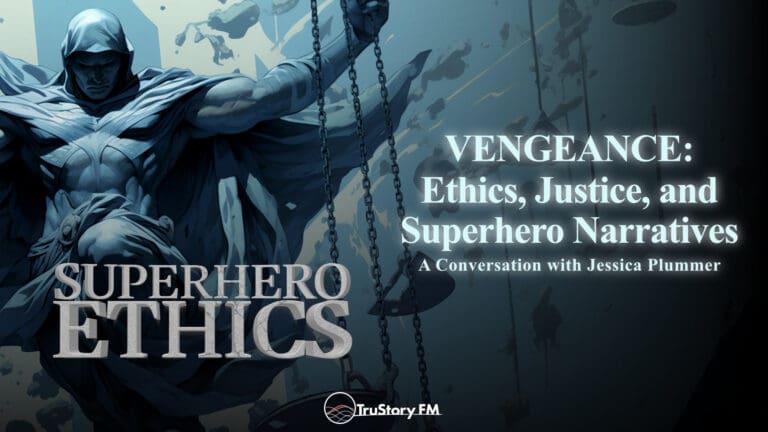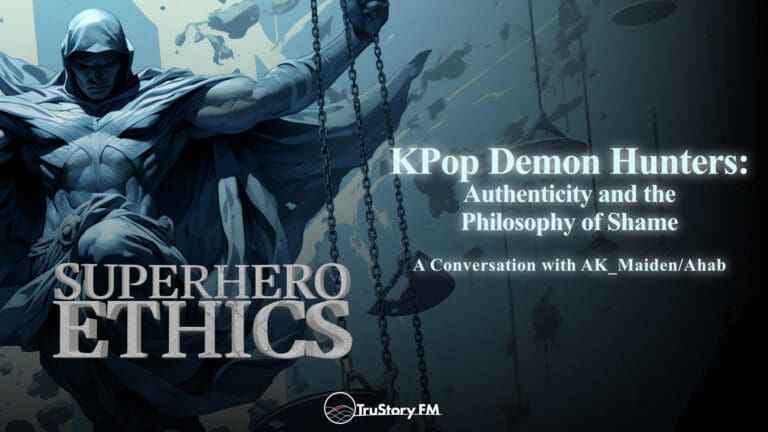How Does War Change a Nation? Exploring Fullmetal Alchemist: Brotherhood‘s Complex Themes
In this episode of Superhero Ethics, Matthew and Riki dive deep into Fullmetal Alchemist: Brotherhood, examining how this influential anime tackles challenging questions about war, revenge, and national guilt. The hosts explore how the series portrays a nation grappling with its dark history of genocide and military expansion while following characters who must decide whether to pursue revenge or seek a path toward healing.
Can science and faith coexist in a world of alchemy? The discussion explores how the series handles the relationship between scientific understanding and mystical elements, particularly through its unique magic system of alchemy and the mysterious Gate of Truth. The hosts examine how the show avoids simple answers about the limits of human knowledge and understanding.
What role does disability representation play in storytelling? The conversation analyzes the series’ groundbreaking portrayal of prosthetics and disability through “automail” technology, highlighting how the show maintains realism in its depiction of adaptation and emotional challenges while incorporating fantastical elements.
How do cycles of violence perpetuate themselves, and can they be broken? Through characters like Scar and Roy Mustang, the hosts examine how the series portrays both the understandable desire for revenge and the difficult choice to break cycles of violence, even in the face of justified anger.
Other Topics Covered:
- The significance of equivalent exchange as both a scientific law and moral metaphor
- How the character of Scar evolves from antagonist to ally
- The portrayal of teenage relationships and growing up amid conflict
- The influence of various cultural and historical events on the series’ depiction of Ishval
- The role of guilt and redemption in motivating character actions
- The significance of German aesthetic influences in the series
The discussion concludes by highlighting how Fullmetal Alchemist: Brotherhood demonstrates that ending cycles of violence requires individual choices to pursue peace, even when revenge seems justified. Through its complex characters and nuanced storytelling, the series offers insights into how nations and individuals can move forward from dark chapters in their history.











